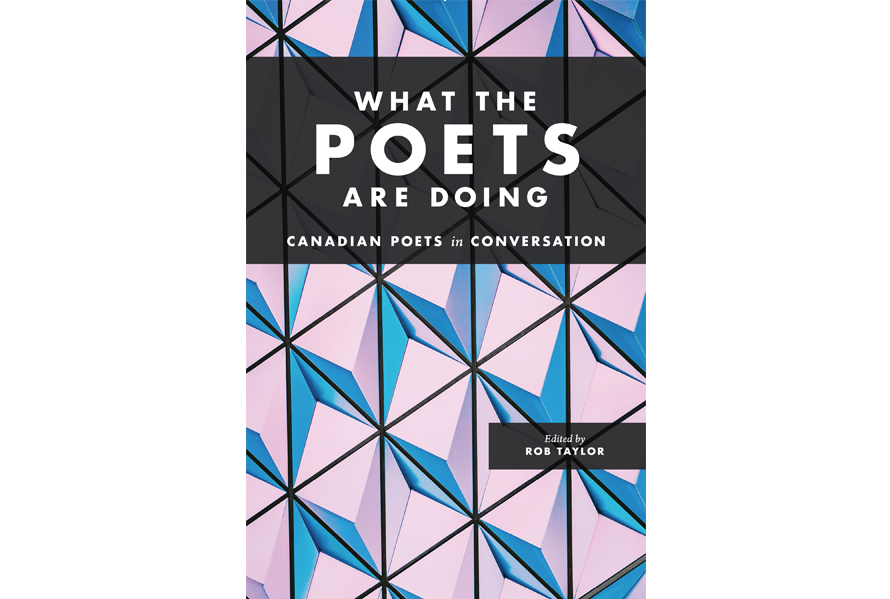
The following is an excerpt from What the Poets Are Doing: Canadian Poets in Conversation, which will be published by Nightwood Editions in late November 2018. The book will feature conversations between twenty-two of Canada’s top modern poets.
Marilyn Dumont: I want to ask you if you think our literature is becoming more recognized, and if so why do you think that is? It’s a very different writing climate from when I began publishing in the eighties. It now doesn’t feel as odd, marginal, exotic or as lonely as it once did. Your thoughts?
Katherena Vermette: Why is our writing so hot right now, hey? I am of two minds on this one. On one hand I think we’ve always had a bunch of fierce warrior writers who have worked their asses off and created. We who are writing now are just the next wave. But I also think there is a certain amount of trendiness these days, something about the reconciliation (trademark ® to Canada) that has lent to a surge of attention. But that has nothing to do with us, really. Many people are interested in our stories and that’s great—Indigenous folks want Indigenous lit because we want to finally see ourselves in these books or learn more about our nation or nations like ours, and non-Indigenous folks are interested because, well, maybe it’s a trend or maybe its time has just come. I have had many long and hard conversations about cultural appropriation this past year and I think it comes down to authenticity. So many people want authentic stories, whether it’s from someone like them or someone different.
You wanna talk about cultural appropriation? It feels like a can of worms but could be fun.
Dumont: Sure let’s talk about cultural appropriation. The other issue that has emerged for me is the concept of Indigenous stories being healing; however, surely Indigenous writers can write stories that don’t heal. What about a writer who employs story to self-aggrandize their writing and not the community? The two may be related if we think of the recent case of Joseph Boyden. What are your thoughts?
Vermette: A friend of mine, who is a cultural teacher and community organizer, told me once that stories need to show a way out, that it’s irresponsible to tell a sad story without also telling how to heal from it. She was thinking of the youth she works with and the epidemics of suicide, violence and drugs, and felt that Indigenous stories needed to rise above the “poverty porn.” I think about this often when I write. I think about the responsibility we have to young people and the communities we write about but I don’t think this means we can’t talk about the hard stuff, or that we have to be preachy or didactic in this idea of healing. I think the act of writing and giving voice is an act of healing on its own.
But I’m talking about truthful stories. When someone tells a story out of pity or misunderstanding, that is not healing. That’s insulting. When someone tries to speak for someone else, that is an act of abuse. When someone pretends to be someone they are not, they are living a lie. If someone is living a lie, how can they tell the truth? My understanding of stories and storytelling is that they should strive to be truthful above all else. I include poetry in this, of course.
But I give this question back to you as well. What do you think?
Dumont: I agree very much with your points. I think one of the differences between Indigenous storytelling and some of the contemporary English canon is that Indigenous storytelling is intimately connected with identity/territory/kinship which is different from narrative components in Euro-Western culture where story is often about authorial licence/individualism/the esteemed role of the artist—artists being inspired by the gods. I am grateful to come from the tradition of Indigenous storytelling.
In my poetry, I am influenced by the voices that have taught me the beauty of Indigenous ways by orators as well as the Indigenous writers who came before me.
Vermette: It’s been a tough (understatement) time for Indigenous justice (or lack thereof) with both George Stanley’s acquittal in the death of Colten Boushie and Raymond Cormier’s acquittal in the death of Tina Fontaine. How important do you think the politics/issues/bullshit are to your work?
Dumont: Indigenous justice or injustice is omnipresent. Throughout the history of Indigenous peoples on their homeland, injustice is pervasive, so it seems it doesn’t really matter what era, place, I write about—it’s present. It does inform my work; even when I’m not citing something specific, it haunts it.
Presently, I am slowly (snail’s pace) working on poetry about Amiskwaciwashigan, and it’s embedded in the land, so it’s ever-present.
What about you? How important is it to your work?
Vermette: I like your description of its hauntingness. It’s true. It’s always there. I want to write only about beauty and strength, and I can always find that, but it’s not the whole story. There is always tragedy. There’s always something that could have been different “if only.” I don’t know why I don’t just let myself rage. Maybe I’m afraid I’ll never stop.
Excerpted with permission from “Animating Their Words: Marilyn Dumont and Katherena Vermette” in What the Poets Are Doing: Canadian Poets in Conversation.
What the Poets Are Doing will be launched in Victoria on November 17th (The Bent Mast, 7 PM) and Vancouver on November 18th (VPL Central Branch, 1 PM).